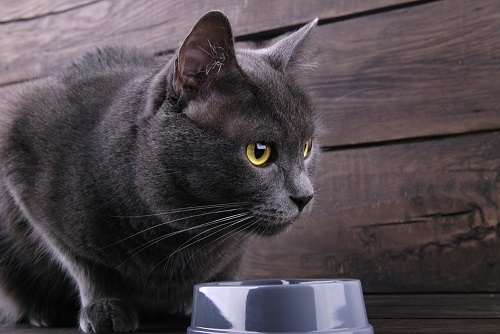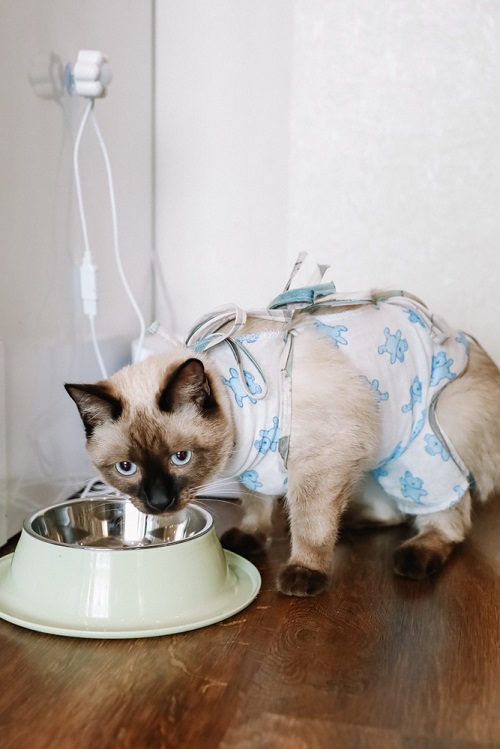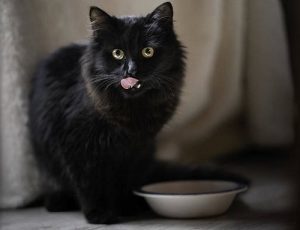Can Cats Eat Grits? Read up about the nutritional content, benefits, and risks of this porridge for felines.
Do you ever wonder if you are feeding your cat the right things? As pet owners, we often want to give our furry friends a taste of what we are eating. This leads to confusion about foods that are not typically associated with cats, like grits. While it might seem harmless to give your pet a few bites of this Southern staple, there is more to the story. In fact, the answer to the question – ‘Can Cats Eat Grits?’ is more complex than you might think. So, before you dish out a bowl for your felines, explore the potential risks and benefits of this popular food below.
Can Cats Eat Bacon? Find out here
What Are Grits?

Before we dive into whether cats can eat grits, let us first understand what grits are.
A popular Southern dish, grits are made from ground corn that has been boiled in water or milk until it becomes thick and creamy. They can be served as a side dish or as a base for other dishes, such as shrimp and grits casserole. While grits are most commonly associated with Southern cuisine, they are enjoyed in many parts of the United States and beyond.
Can Cats Eat Grits?
Now that we have a basic understanding of what grits are let us move on to whether they are safe for our feline friends to eat.
Can Cats Eat Grits? The answer is not a simple yes or no. Grits are made from ground corn and are typically safe for cats to consume in small amounts. However, as felines require animal-based protein to thrive, thus girts are not an ideal or necessary part of their diet.
Note- If your furball accidentally consumes a small bite of grits, don’t fret, as it doesn’t pose any health risks. However, in case of overconsumption, closely monitor your kitty for any signs of digestive upset and consult a vet if needed.
Are Grits Toxic For Cats?

Grits are not toxic to cats, but they do not provide the necessary nutrition for them. Cats are obligate carnivores, meaning that they need a diet rich in protein and fat and low in carbs. On the other hand, grits are primarily made up of carbohydrates and lack essential nutrients. That’s why it’s not an ideal food option for kitties.
Do Grits Contain Any Nutritional Value For Cats?
Although grits contain the following nutrients, their amounts are not high enough to meet a cat’s dietary needs –
- Protein
- Fiber
- Thiamine
- Niacin
- Iron
How To Feed Grits To Cats?
If you decide to feed grits to your cat, it’s important to do so in moderation and with caution. Here are some tips –
- Serve it plain and unseasoned: Avoid adding butter, salt, or other flavorings that could be harmful to your cat’s health.
- Serve in small amounts: A tablespoon or less should be sufficient for your kitty to try.
- Monitor: Keep a check on your cat for signs of digestive upset or allergic reactions after grits consumption.
- Control: Do not make grits a regular part of your cat’s diet. While it is okay to offer them as an occasional treat, grits should not make up a significant portion of the feline diet.
Risks Of Feeding Grits To Cats
Feeding grits to felines can pose some risks to their health, especially if it’s a regular part of their diet.
- Digestive Upset: Grits are high in carbohydrates, which cats do not require in their diet. Feeding a high-carb diet, such as grits, can lead to digestive upset, including diarrhea, vomiting, and flatulence.
- Obesity: Feeding your cats a carbohydrate-high diet can also lead to obesity, especially if they are not doing enough exercise. Obesity in cats can lead to a range of health problems, including diabetes, heart disease, and joint problems.
- Nutritional Deficiencies: Grits do not provide the necessary nutrients that felines require in their diet. Feeding your cat a diet deficient in essential nutrients can lead to malnutrition and a range of health problems.
- Allergic Reactions: Some cats may be allergic to certain ingredients in grits, such as corn, causing symptoms such as itching, swelling, and difficulty breathing.
- Dental Problems: Feeding your cat a diet high in carbs can also lead to dental problems, including tooth decay and gum disease.
Can Cats Eat Grits? Quick Takeaways!

- Grits is a dish made from ground corn boiled in water or milk until it becomes thick and creamy.
- Grits are primarily made up of carbohydrates and lack essential nutrients, making them unsuitable for cats as obligate carnivores.
- Although grits contain some nutrients such as protein, fiber, thiamine, niacin, and iron, the amounts are not sufficient to meet a cat’s dietary needs.
- If you decide to feed grits to your cat, it is important to do so in moderation and with caution. Serve it plain and unseasoned in small amounts, and monitor your cat for signs of digestive upset or allergic reactions.
- Feeding grits to cats regularly can pose risks to their health, including digestive upset, obesity, nutritional deficiencies, allergic reactions, and dental problems.



